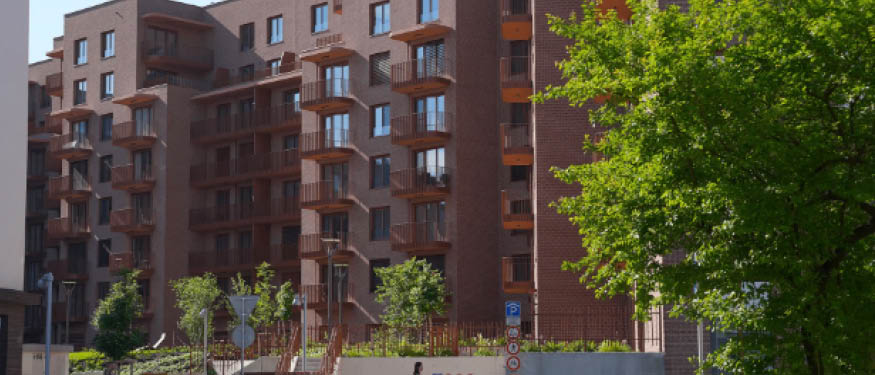Ukraine is actively gearing up for the imminent post-war reconstruction, a major undertaking to restore the infrastructure destroyed by hostilities. An integral aspect of the preparatory measures involves enhancing the legal framework to establish favourable conditions for attracting private investments into the extensive reconstruction.
The government has consistently voiced its commitment to ramping up efforts in the realm of public-private partnerships (PPP), recognizing this collaborative approach as an effective tool in the post-war reconstruction process. Notably, there are imminent expectations for the Parliament's adoption of Draft Law No. 7508 to simplify and enhance the PPP procedures. It is anticipated that the following changes will be adopted in the regulation of PPP:
- New forms of financing
The government acknowledges that a significant portion of PPP projects will be implemented with funding from foreign partners. Therefore, it proposes to introduce the concept of a donor into legislation – an entity providing a grant either directly to the private partner or through the state and local budgets of the government partner. Donors may include the EU, foreign states, international organizations, foreign municipalities, and other institutions and organizations.
- New forms of state support for PPP
Anticipated legislative amendments include a comprehensive review and expansion of the range of state support mechanisms available for PPP projects. In addition, the draft law proposes to enhance the support mechanism pursuant to which the public partner would be able to provide backing to the private partner through the assurance of payment for goods or services essential for project execution. This support will serve to offset the disparity between the projected and actual levels of demand for the goods or services.
- Simplification and streamlining of PPP project preparation procedures
A pivotal innovation eagerly anticipated within the framework of this PPP reform is the introduction of the concept of a "small" PPP project, which is set to undergo a simplified preparation procedure. It is planned that a project will be considered "small" if its expected value is less than the equivalent of EUR 5,382,000.
The simplification entails the elimination of the requirement for the preparation of technical and economic justification for projects, as well as a reduction in the decision-making period for implementing PPP and preparing for the tender. In such cases, the decision to proceed with the PPP will be made based solely on the preparation and detailed analysis of the conceptual note.
- Infrastructure and economic recovery projects
The proposed legislation outlines a specialized procedure for the preparation, selection, and conduct of tender to identify a private partner for the construction or reconstruction of infrastructure that has been destroyed or damaged due to military aggression against Ukraine. These projects will be formulated and executed at the state and local levels.
The distinctive feature of this specialized procedure is that conceptual notes, technical and economic justifications, and efficiency analyses are not required. This approach aims to reduce the preparation time for PPPs by 10-12 months. Additionally, model sets of competition documentation, estimated budgets, and other templates will be prepared for such projects. This special procedure is planned for implementation only for a limited period - during the martial law and five years after its conclusion.
The purpose and rationale behind this special procedure are to streamline and expedite the mechanism for engaging private partners in the reconstruction of devastated infrastructure.
- "Infrastructure on installments"
The reform drafters intend to enhance a form of PPP that relies on government payments to a private partner, essentially characterized as "infrastructure by installments," to meet the needs of future post-war reconstruction. This collaborative approach has the potential to be highly effective and efficient.
- Expansion of the list of public partners
The government aims to streamline the process of involving state-owned companies in PPP, thereby facilitating the attraction of additional private investments for infrastructure development.
- Digital system for PPP
The introduction of a unified digital system for conducting tender to select private partners is envisaged. This system will enable the creation, posting, disclosure, and exchange of information and documents in electronic format, facilitating the entire tender process. Additionally, it will facilitate interaction with the digital project preparation and management platform.
The Ministry of Economy of Ukraine is already developing such an electronic system and plans to launch it in 2025.
The suggested legislative amendments establish favorable conditions for the efficient implementation of the PPP mechanism in the post-war reconstruction of Ukraine. Streamlined procedures for engaging private partners, novel forms of collaboration, and various types of guarantees indicate that PPPs can emerge as a robust tool for attracting investments in the rehabilitation of infrastructure devastated by war.
We are optimistic that the Parliament will expeditiously adopt Draft Law No. 7508, initiating the process of attracting investments into reconstruction process.
By Roman Stepanenko, Partner, and Kateryna Oliynyk, Counsel, Asters
















